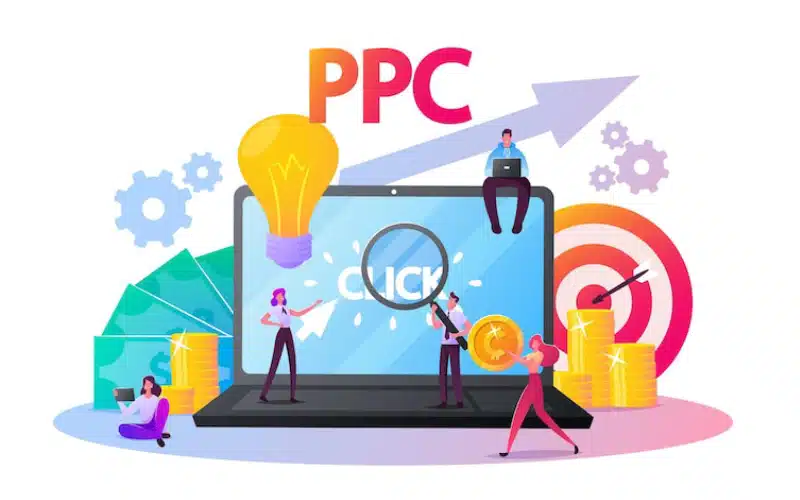2023-09-11
12 highly sought-after and versatile digital marketing skills
12 highly sought-after and versatile digital marketing skills
Accomplished digital marketers understand the necessity of continuously updating and adapting their skillset to stay ahead in an ever-evolving field. In an industry characterized by perpetual change, it’s imperative to ensure your digital expertise remains up-to-date, enabling you not only to excel in your current role but also to be highly appealing to prospective employers.
One of the remarkable aspects of digital marketing is the inherent transferability of your skillset. These skills are versatile and can be applied across various industries, as nearly all businesses now require a strong online presence and a cohesive marketing strategy.
Let’s delve into the 12 essential skills you should cultivate to establish yourself as an invaluable professional in this thriving industry:
- Social Media Management and Strategy
- Analytics & Data
- Marketing Automation Skills
- SEO (Search Engine Optimization) Expertise
- Content Marketing Mastery
- Artificial Intelligence
- UX & Web Design
- Search Marketing & PPC
- Digital Strategy
- Conversion Rate Optimization (CRO) Knowledge
- Mobile Marketing Competence
- Email Marketing Proficiency
- Social Media Management and Strategy
Social media has undeniably emerged as an incredibly effective channel for attracting, engaging, and influencing customers. The proof lies in the staggering projections for social media ad spending, expected to reach an astounding $262 billion by 2028, as reported by Statista.

This exponential growth is fueled by the sheer reach and popularity of social media, with predictions anticipating over 5 billion users by 2024. Consequently, social media has become an indispensable platform for marketers, and companies are actively seeking professionals skilled in this domain. Year after year, the demand for social media specialists consistently ranks among the topmost desirable skills in the job market.
Yet, achieving success in the realm of social networks is an art that goes beyond the simple act of posting content. Social media-savvy marketers must possess a diverse skill set, including:
Copywriting: Crafting compelling and engaging written content is fundamental for effective communication on social platforms.
Design: The ability to create visually appealing graphics and multimedia content is crucial for capturing users’ attention.
Customer Service/Community Engagement: Building and nurturing a strong online community, as well as addressing customer inquiries and concerns, is vital for brand loyalty.
Data Analytics: Proficiency in analyzing social media metrics and user data to inform strategies and measure performance is essential.
Project Management: Effectively coordinating and executing social media campaigns and projects is crucial for meeting goals and deadlines.
Creativity: Thinking outside the box to generate fresh, innovative ideas that resonate with the target audience is a hallmark of successful social media marketing.
Budgeting: Managing and optimizing advertising budgets to achieve maximum ROI is a skill highly prized in the social media marketing landscape.
A combination of these multifaceted skills transforms an individual into a sought-after social media marketer, aligning with the demands that employers seek in this dynamic and ever-expanding field.
- Analytics & Data
Absolutely, data and analytics are fundamental aspects of digital marketing for several compelling reasons:
Complex Customer Buying Journey: In the digital age, customers often navigate through multiple online channels before making a purchase decision. Gathering and analyzing data across these channels helps marketers understand and optimize the customer journey.
Invaluable Insights: Data provides valuable insights into customer behavior, preferences, and trends. These insights can inform marketing and sales strategies, enabling companies to make data-driven decisions.
Goal Setting and Metrics: Establishing clear goals for analytics is crucial. Metrics tied to each goal serve as benchmarks for measuring the success of marketing activities, such as campaign performance.
Actionable Metrics vs. Vanity Metrics: It’s vital to differentiate between actionable metrics and vanity metrics. Vanity metrics, like website traffic, may look impressive but often don’t correlate with business objectives. Focusing on actionable metrics, such as Return on Investment (ROI), ensures that efforts align with meaningful outcomes.
Channel Attribution: Analyzing data allows marketers to determine which channels are most effective at driving conversions. This knowledge helps allocate resources and optimize marketing efforts towards high-converting channels.
In essence, data and analytics empower marketers to make informed decisions, allocate resources efficiently, and continually refine their strategies. This data-driven approach is pivotal in understanding customer behavior, improving campaign performance, and achieving meaningful business outcomes in the dynamic landscape of digital marketing.
- Marketing Automation Skills
In spite of the uncertain global economic climate, the marketing technology landscape has exhibited remarkable growth in 2023. According to Martech.org, it has expanded by over 1,000 solutions, now totaling an impressive 11,038, compared to the previous year. Of these, personalization tools have emerged as the most coveted.
The ever-increasing array of marketing technology, often referred to as “martech,” offers a distinct advantage by enabling businesses to streamline their processes and enhance the effectiveness of their teams. Nevertheless, due to the diverse scope of martech capabilities within the realm of digital marketing, proficiency requires mastery of multiple tools and a breadth of knowledge.
While it’s impractical to become an expert in every available tool, here are some of the most widely adopted ones in the business world, aiding in the optimization of marketing activities:
Analytics – Google Analytics
Customer Relationships – Salesforce
Personalization – Optimizely
Social Media Management – Hootsuite, Buffer
Advertising – Google Ads, AdRoll (for retargeting)
Collaboration – Slack, Monday
Automation – Marketo
Email – MailChimp
SEO (Search Engine Optimization) – Moz, SEMRush
These martech tools empower digital marketers to navigate the complex landscape of digital marketing with precision and effectiveness, providing invaluable support in an ever-evolving industry.
- SEO (Search Engine Optimization)
Search engine optimization (SEO) stands as a pivotal marketing strategy that has gained increasing significance among marketers, becoming essential for securing online visibility. SEO encompasses not only on-page optimization but also off-page strategies and local SEO, which is particularly crucial for those associated with local brands.

One of the primary challenges posed by SEO, akin to the ever-shifting landscape of social media algorithms, is its continuous evolution. This dynamic nature often leaves marketers feeling perplexed and exasperated. However, given the fact that an ever-growing number of prospects are turning to the internet to discover products or services and make purchases, SEO knowledge is now deemed indispensable for marketing professionals.
For digital marketers aspiring to enhance their skill set, it’s worth noting that SEO is a thriving domain well worth specializing in. According to Backlinko, the top result on Google garners approximately 32 percent of all clicks, underscoring the immense value of high search engine rankings in bolstering a brand’s visibility.
This heightened visibility underscores the paramount importance of SEO, and there are key components within SEO that should be understood, while also remaining attuned to the ever-changing algorithms:
Keywords: Identifying and strategically implementing relevant keywords to enhance search engine rankings.
SEO Optimized Content: Crafting content that is not only valuable to users but also optimized for search engines.
Meta Tags: Creating well-optimized meta tags to provide search engines with essential information about web pages.
Backlinks: Cultivating a network of quality backlinks from authoritative sources to boost a site’s credibility.
Images: Optimizing images for both user experience and search engine indexing.
Even if one doesn’t aspire to become an SEO expert, possessing a working knowledge of SEO is a highly valuable and transferable skill. It can set you apart in interviews and position you for promotions by demonstrating your ability to navigate the competitive digital marketing landscape effectively.
- Content Marketing Mastery
In an era inundated with an abundance of online information, the capacity to create, curate, and effectively manage content emerges as an exceedingly coveted skill in the realm of digital marketing, applicable across diverse industries.
Creating content that not only captures the audience’s attention but also compels them to take action, such as visiting a website or landing page, is of paramount importance. It’s no longer sufficient to merely generate content and disseminate it across various channels; it must seamlessly integrate into an inbound marketing strategy that aligns with business objectives and demonstrates a tangible return on investment (ROI).
For instance, envision the launch of a new product. While a promotional video shared across social media may garner initial interest, the critical questions are: Where do interested individuals go next, and what actions are they encouraged to take? In this scenario, thoughtful consideration should be given to the creation of a gated landing page, enticing visitors to share their personal information in exchange for an enticing offer, such as a discount. Additionally, it’s vital to engage with existing prospects by leveraging your mailing list, granting them exclusive VIP access. Such a holistic perspective is essential as it allows you to utilize content strategically, attracting and engaging individuals across various channels and at distinct stages of the marketing funnel.
In a digital landscape where thousands of new blogs and ads are produced and consumed daily, digital marketers who possess the skill to curate and craft compelling content with high click-through rates become invaluable assets to any team. They have the ability to cut through the digital noise, leaving a lasting impact on the target audience and ultimately driving results for businesses.
- Artificial Intelligence (AI)
Artificial Intelligence has witnessed a remarkable evolution in recent years and is increasingly finding integration into the marketing endeavors of businesses.
Numerous instances of AI in marketing are already evident, including applications such as social listening, content generation, automation, data analysis, and audience segmentation. Consider, for instance, how ChatGPT can generate content for advertising campaigns or how generative programs like Midjourney can produce images.
According to PwC’s Global Artificial Intelligence study, AI-driven marketing is anticipated to contribute significantly, accounting for 45 percent of the total global economy by 2030. This impact is expected to manifest through personalized services, data-driven product enhancements, and the capacity to shape consumer demand.
In the ever-evolving landscape of digital marketing, it is imperative for marketers to not only embrace AI but also acquire a foundational understanding of how it can optimize marketing activities. Some of the most commonly employed AI technologies that marketers should familiarize themselves with include machine learning, natural language processing, semantic search, and sentiment analysis.
Scott Brinker, Editor at Chiefmartec, emphasizes that “AI as your co-pilot is real, and it’s going to change the relationship between buyers and sellers because buyers will have AI too.” This transformation underscores the growing significance of AI in marketing, where it serves as a potent tool in enhancing customer experiences, optimizing marketing strategies, and driving business growth. As such, being AI-savvy is not just a valuable skill but a necessity for contemporary marketers.
- UX & Website Design
UX, which stands for user experience, represents a pivotal approach for brands to concentrate on the interaction between human users and everyday products or services, particularly websites and applications.
The ability to optimize a website or landing page to offer an enhanced customer experience is indispensable, especially when it comes to understanding customer buying behaviors and decision-making processes. Even seemingly minor adjustments, such as adding a conspicuous Call to Action (CTA) button or conducting A/B testing, can yield significant improvements.
In an online landscape teeming with competition, customers gravitate towards well-designed websites that offer a seamless and straightforward user journey. In the absence of user-friendly design and visual appeal, prospects are unlikely to linger on a site for long.
The demand for UX experts is so substantial that the U.S. Bureau of Labor Statistics projects a remarkable 23 percent increase in roles like Web Developers and Digital Designers (including UX roles) between 2021 and 2023.
Proficiency in UX design equips individuals with a skill set that empowers businesses to stand out and foster brand loyalty. Through a streamlined customer experience and a website optimized for UX, an organization can guide prospects through its sales funnel, ultimately converting them into high-value leads. UX and website design, therefore, hold a paramount position in the arsenal of digital marketing skills, enabling companies to offer superior user experiences and gain a competitive edge in the digital landscape.
- Search Marketing & PPC (Pay-Per-Click)
Pay-per-click (PPC) marketing stands as a highly effective method for ensuring your brand and content reach precisely the right audience, those individuals who exhibit a strong interest in your product or service and are poised to visit your website or landing page with a high level of intent.

PPC’s significance has grown considerably as brands seek increased online visibility and strive to outshine their competitors. Within the realm of PPC marketing, there exists a spectrum of campaign types, including search, display, remarketing, video, shopping, and sponsored social, each tailored to distinct objectives and audience segments.
Given that PPC is inherently a paid marketing channel, it is paramount for companies to witness a favorable return on investment (ROI) from their campaigns. This necessitates that marketers possess a firm grasp of the fundamentals.
While creating a PPC campaign through platforms like Google Ads or Bing may seem straightforward, it calls for meticulous planning, vigilant monitoring, the selection of pertinent keywords, and the implementation of a judicious bidding strategy to maximize the value of every cent spent.
Marketers well-versed in PPC, and ideally those with practical experience, are currently in high demand. Acquiring a working knowledge of this area can substantially enhance your career prospects, as businesses increasingly recognize the potential of PPC to drive targeted traffic, generate leads, and deliver measurable results, thereby solidifying its status as a cornerstone in the toolkit of digital marketing skills.
- Digital Strategy
Developing a digital strategy is a crucial step for businesses, but the true challenge lies in its effective implementation. There are numerous pitfalls that can derail even the most well-conceived strategies, which is why businesses seek marketers with a deep understanding of strategic principles.
A strategic marketer possesses the ability to examine how both internal and external factors influence marketing initiatives. This involves considering elements such as the target audience, customer base, organizational strengths and weaknesses, and the competitive landscape.
For those lacking experience in digital strategy, it’s beneficial to acquire some knowledge in this area. This can serve as a valuable example during job interviews and showcase your ability to think strategically. Utilizing digital marketing strategy research templates and action plans can provide insights into the intricacies of developing and implementing a successful strategy. Creating hypothetical plans and experimenting with various scenarios can also help you grasp the nuances of strategic thinking in the digital realm.
In summary, the capacity to formulate and execute a robust digital strategy is a highly sought-after skill in the world of digital marketing. It requires a comprehensive understanding of market dynamics, a strategic mindset, and the ability to adapt and pivot in a rapidly evolving digital landscape.
- Conversion Rate Optimization (CRO) Knowledge
Conversion Rate Optimization (CRO) is a critical aspect of digital marketing, focusing on enhancing the efficiency of websites and other digital assets in converting visitors into desired actions. Certainly, when we mention actions like making a purchase, signing up for a newsletter, or filling out a contact form in the context of digital marketing, we are referring to specific user interactions or conversions that can occur on a website or through other digital channels. Here’s why CRO knowledge is essential:
Maximizing ROI: Effective CRO strategies can significantly increase the return on investment (ROI) for digital marketing campaigns. By converting a higher percentage of website visitors into customers or leads, businesses can derive more value from their marketing efforts.
Data-Driven Decision-Making: CRO relies heavily on data analysis, user behavior tracking, and A/B testing. Marketers with CRO knowledge can interpret data to make informed decisions, optimize user experiences, and boost conversion rates.
User-Centric Approach: CRO places a strong emphasis on understanding user behavior and preferences. Marketers skilled in CRO can create user-centric designs and content that resonate with their target audience, leading to better engagement and conversions.
Competitive Advantage: In a competitive digital landscape, businesses that excel at CRO gain a significant advantage. They can continually refine their websites and marketing campaigns to outperform competitors and adapt to changing consumer behaviors.
Cost Efficiency: Rather than increasing advertising spend to attract more visitors, CRO focuses on extracting more value from existing traffic. This cost-effective approach is appealing to businesses looking to optimize their marketing budgets.
Key elements of CRO knowledge include:
A/B Testing: Comparing two versions of a web page or an element (e.g., a headline, call-to-action button) to determine which one performs better in terms of conversions.
User Experience (UX) Design: Designing intuitive, user-friendly interfaces that guide visitors toward conversion actions.
Content Optimization: Crafting persuasive and engaging content that encourages users to take desired actions.
Conversion Funnel Analysis: Analyzing the customer journey to identify potential bottlenecks and areas for improvement.
Multivariate Testing: Testing multiple variations of elements simultaneously to optimize conversions efficiently.
Data Analysis: Using tools like Google Analytics to gather and interpret data related to user behavior, traffic sources, and conversion paths.
Marketers with CRO knowledge are highly sought after because they contribute to the bottom line by improving conversion rates, ultimately helping businesses grow and succeed in the digital landscape.
- Mobile Marketing Competence
Mobile marketing competence is a vital skill set for digital marketers in today’s mobile-centric world. With an increasing number of consumers using smartphones and tablets, mobile marketing has become a cornerstone of digital strategies. Here’s why mobile marketing competence is crucial:
Mobile-First Approach: Mobile devices have surpassed desktops in terms of internet usage. Marketers must design campaigns and content with mobile users in mind to ensure optimal user experiences.
Ubiquitous Access: Mobile devices provide users with 24/7 access to information, making it essential for marketers to reach audiences at any time and place.
App Ecosystem: Mobile apps are a significant part of the digital landscape. Competence in mobile marketing includes app marketing, user acquisition, and retention strategies.
Location-Based Marketing: Mobile devices enable location-based marketing, allowing businesses to deliver highly targeted, location-specific content and offers to users.
Responsive Design: Understanding how to create mobile-responsive websites and email templates is crucial to ensure that content is accessible and visually appealing on various screen sizes.
Mobile Advertising: Proficiency in mobile advertising platforms, such as Google Ads, Facebook Ads, and mobile ad networks, is essential for reaching mobile audiences effectively.
SMS and Push Notifications: Knowledge of SMS marketing and push notifications is vital for engaging users and driving conversions through timely and personalized messages.
Mobile SEO: Understanding mobile search engine optimization (SEO) principles is essential for ensuring that mobile websites rank well in search engine results.
Mobile Analytics: Competence in mobile analytics tools allows marketers to track and measure the performance of mobile campaigns, user behavior, and conversions.
User Experience (UX): Mobile marketers need to prioritize mobile-friendly design and intuitive navigation to deliver a seamless and enjoyable user experience on mobile devices.
App Store Optimization (ASO): For businesses with mobile apps, ASO is crucial. It involves optimizing app store listings to improve discoverability and downloads.
Mobile marketing competence is about adapting marketing strategies and content to the mobile context, recognizing the unique opportunities and challenges that mobile devices present. It’s also about staying updated with evolving mobile technologies, consumer behaviors, and platform-specific best practices. Marketers who excel in mobile marketing are well-positioned to engage with the ever-growing mobile user base and drive results for their organizations or clients in an increasingly mobile-driven world.
- Email Marketing Proficiency
Email marketing remains a cornerstone of digital marketing strategies and is an essential skill for marketers to master. Here’s why email marketing proficiency is crucial:
Cost-Effective Communication: Email marketing is one of the most cost-effective ways to reach and engage with a large audience. It offers an excellent return on investment (ROI) when executed effectively.
Direct Audience Engagement: Email allows you to directly communicate with your audience, whether it’s for promotional campaigns, newsletters, updates, or personalized messages.
Segmentation and Personalization: Proficiency in email marketing includes the ability to segment your email list and personalize content, increasing the relevance of your messages and engagement rates.
Automation: Understanding email automation tools and workflows is crucial for sending timely and relevant messages to subscribers based on their behavior and preferences.
Design and Content Creation: Creating visually appealing and engaging email designs, as well as crafting compelling email copy, is essential for capturing the attention of recipients.
A/B Testing: Proficiency in conducting A/B tests to optimize subject lines, content, and calls to action helps improve email performance over time.
Compliance and Privacy: Familiarity with email marketing regulations, such as CAN-SPAM and GDPR, is vital to ensure legal compliance and protect subscriber privacy.
Analytics and Reporting: The ability to track email metrics, interpret analytics data, and use insights to refine future campaigns is a key aspect of email marketing proficiency.
List Management: Managing and growing an email subscriber list while maintaining list hygiene is crucial for the long-term success of email marketing efforts.
Integration with Other Channels: Integrating email marketing with other marketing channels, such as social media and content marketing, helps create cohesive and effective marketing strategies.
Mobile Optimization: Given the prevalence of mobile email users, optimizing email content and design for mobile devices is essential to ensure a seamless user experience.
Conversion Optimization: Proficiency in email marketing involves understanding how to use email to drive conversions, whether that means making a purchase, signing up, or taking another desired action.
Email marketing proficiency is about more than just sending messages; it’s about crafting compelling campaigns that resonate with your audience, drive engagement, and achieve measurable results. Marketers who excel in email marketing can effectively nurture leads, build brand loyalty, and contribute to the overall success of their marketing strategies.




